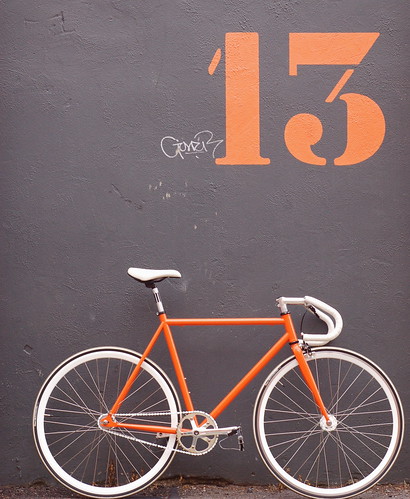Job Alert: Membership Coordinator – Washington Area Bicyclist Association (WABA)
via @WABADC
The Washington Area Bicyclist Association seeks an enthusiastic, dynamic membership coordinator to manage WABA’s membership program. We are specifically looking for a go- getter; someone who is enthusiastic about WABA’s mission and comfortable making “the ask,” i.e. selling memberships by engaging existing and potential individual and business members with WABA.
Responsibilities
The membership coordinator will:
- Manage WABA’s membership program in order to gain, retain, and engage our current membership and to further grow our member base.
- Improve upon existing membership growth and retention strategies and develop new strategies as needed in order to meet (or exceed) annual membership revenue goals.
- Process and fulfill membership and renewal contributions and store item purchases through our CRM database.
- Update and de-duplicate database with member and supporters information.
- Assist with a variety of tasks related to the administration of the program, including data entry, organization/inventory, clerical work, etc.
- Regularly represent WABA at our events, other community events, and through pop-up, on-street outreach, engaging area bicyclists about bicycling and WABA and actively selling memberships.
- Handle all facets of membership-related communications and messaging including email communication, blog posts, web content, social media communication (in collaboration with the Communications Coordinator), direct mail, print materials, and merchandise.
- Respond to membership concerns via email, phone, or in-person.
- Manage the Business Membership Program, researching, pursuing, and securing annual business membership targets and revenue goals.
- Oversee and market member benefits/discount partnership program including securing new member benefit partners and promoting existing partners through blog, social media, and membership materials.
- Collaborate with WABA staff to effectively grow and promote membership through our outreach, events, education, and communications.
Preferred Qualifications
The ideal candidate will have:
- A strong commitment to WABA’s mission.
- Capacity for development and fundraising.
- A comfort with “making the ask” i.e. actively selling memberships and fundraising. This is not a position for someone who is not willing or comfortable engaging individuals or asking for financial support.
- Previous CRM database management or maintenance experience.
- Experience with direct mail and email communication campaigns a plus.
- Excellent interpersonal skills, with strong written and verbal communication skills. Strong computer literacy skills with specific experience using Microsoft Word and Excel.
- A high attention to detail, with a focus on accuracy.
- A self-motivated approach, able to manage programs and campaigns with little
oversight. - Excellent time management skills, able to balance multiple tasks and priorities
simultaneously.
Benefits include flex time, vacation, sick and personal leave, and WABA’s retirement and health insurance programs. Salary dependent on experience. This position is full-time.
Apply
Send a compelling cover letter and resume describing your interest in the position, related qualifications, and salary expectations to jobs@waba.org. Please include “Membership Coordinator” in the subject line. Applications accepted until March 31.
WABA is committed to providing equal employment opportunity for all persons regardless of race, color, religion, national origin, marital status, political affiliation, sexual orientation or gender identity, disability, sex, or age.





